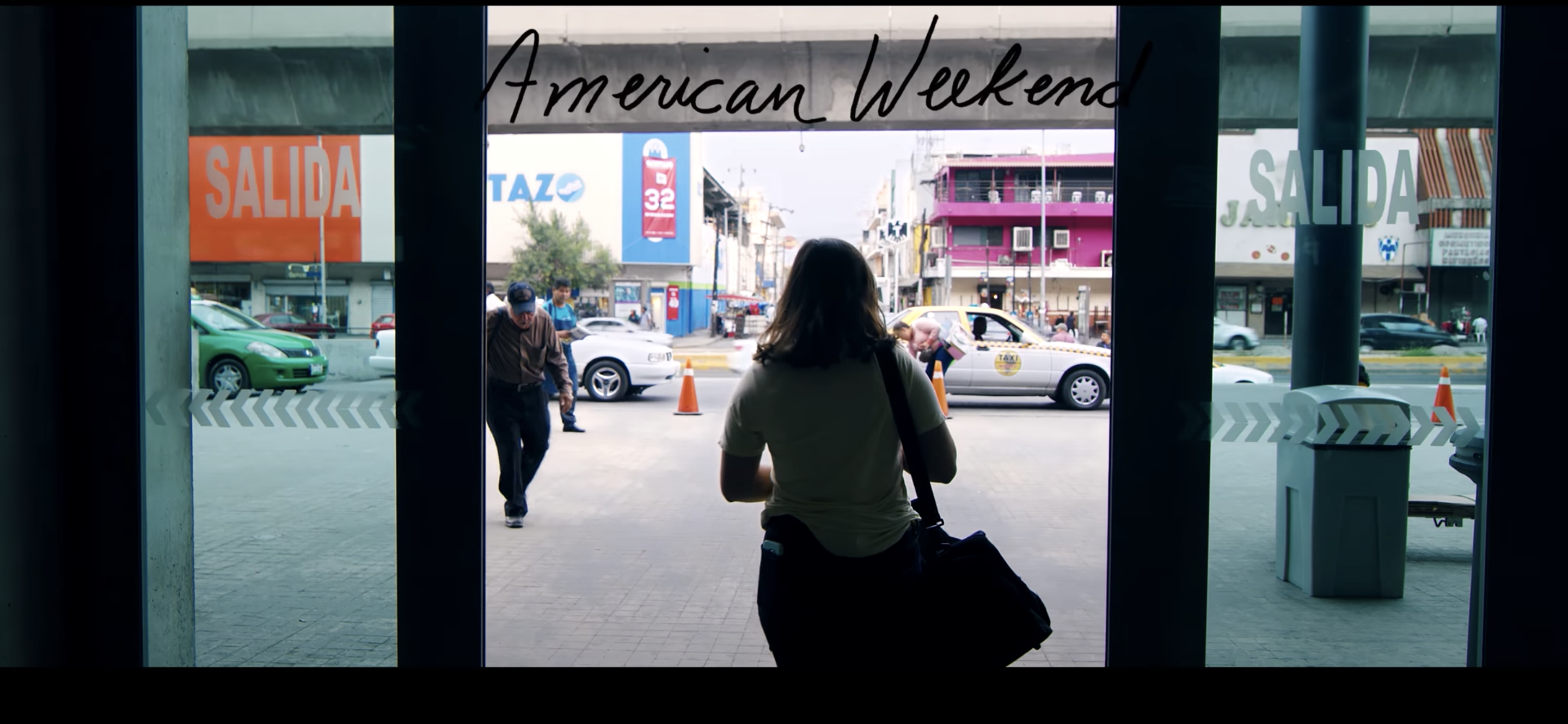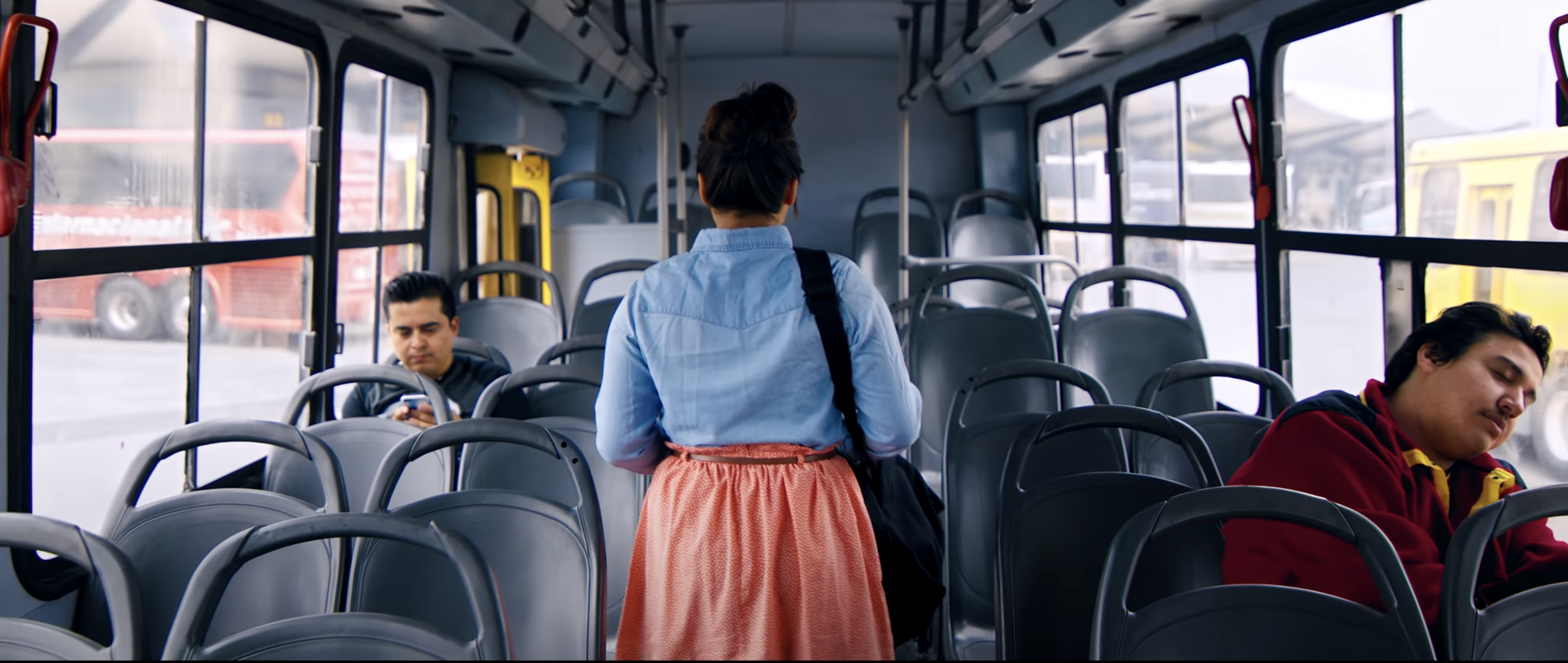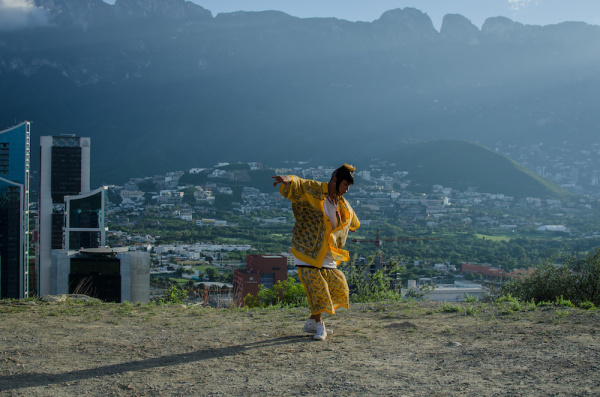
We want to celebrate Latinx Heritage Month by taking a look into the future! Today we are spotlighting Angel Salinas, a Mexican American filmmaker from Southeast Los Angeles. Angel was part of the Mitú / Delta Aeromexico Accelerator Program and created the short film American Weekend.
American Weekend follows a girl who “goes to visit her family in Monterrey, Nuevo Leon, Mexico after years of being away from them while living in the U.S.”
We talked with him about American Weekend, Latinx representation in Hollywood, and the writing process. Check it down below!
*This interview has been edited for length and clarity
Q: How did you decide you wanted to shoot in Monterrey for American Weekend?
A: Well my dad’s side of the family is from Monterrey and I’m not very close to my dad. My short film, American Weekend, is based on a real thing that I went through in ninth grade. The only family from my dad’s side that is here is my aunt. She told me that the Salinas family, which is my dad’s side, were having a family reunion in Monterrey. She was like you’re his son, you have to be there. At the time, I was just like “yeah I get to miss a week of school and go on a trip, let’s go!” I didn’t realize the impact that that trip had on me until months later when I had time to reflect on it. It was a very strange trip where I was being introduced to a bunch of family and people telling me they are my family and I just felt nothing. Movies make you believe that once a character is revealed to be your brother, all these feelings burst out of you and none of that happened. I’ve met my dad before, but he’s just a guy. That trip made me realize even more, this is just a guy, all these half siblings, aunts , uncles — they’re just people that someone is telling me is my family. I spent a lot of time on that trip by myself. Probably didn’t really feel comfortable, I didn’t know anybody. Everybody was trying to, almost forcing me, to be part of this family. They weren’t malicious about it or anything, they had good intentions, but that trip made me realize that that ship had sailed. That’s a story I always wanted to tell and that’s going to be my first feature, but when this Mitu thing came around, they wanted a short film and so I was like I can take that little part where she goes to Mexico and turn that into a short. Since the program was like you can shoot anywhere in the US or Mexico, I was like Fuck yes, let’s go shoot in Mexico. Even though most of my movie was shot inside a house, I wanted to go and get that experience and shoot those cool exteriors that just make it feel like a different place, get Mexican actors. That was my favorite thing! Getting actors to speak in Spanish, the way I always imagined. That short film was a way for me to test myself. I wanted the authenticity of it.

Q: When you filmed the short did you make any changes to your feature? Were there scenes that didn’t mix well that you ended up having to change?
The trip to Mexico takes a lot longer in the feature. What my idea for the feature was in 2017 compared to now is completely different because I have just grown as a creative. I realize now that I was not the best I could be back then and I am probably still gonna get better. Now I think I understand story structure much better. Mitu put it out on their page and it got like 30,000 views and a lot of comments were criticizing it! Which is cool, I like criticism, some of them were valid, but I will see a person that got it. Seeing someone take away from it what I intended was all i needed to see. I just needed to know that it got across in some way. I have to be okay that your message isn’t going to be super clear to some people because you have different lived experiences. I’m very subtle with what I want to portray but that’s sometimes a detriment to the story but you just gotta be okay with your choices.
Q: When we’re talking about inspiration, what are some of your biggest ones in your work?
My biggest inspiration is probably how misrepresented I feel my community has been. I’m from the city of Bell in SELA, unless you’re talking about this big city council scandal that happened in 2011. That’s all were known for. It sucks coming from a city where no one really cares about you, there’s no one really famous from where you are from and so its hard to aspire to be anything.I think at the end of the day the thing that drives me that most is to be an example for the people that come after me from my city. No matter what level of success I achieve, I want it to be something that people can look up to and surpass, even if I fail. There’s not a lot of connection between people in the film industry but I wish there was more mentorship in the film community. I wish there wasn’t so much elitism.
Q:A Lot of Nepotism…
I interned at this talent agency. Everyone was asking what college you’re from. Harvard Princeton, NYU. I’m over here like Cal State Northridge. We’re in the same place so why do I feel less? There’s people that are born to live in that environment. It didn’t really discourage me, but it showed me the ugly truth and what I knew was always there: that white people control everything. But basically someone connected me with most of the Latino assistants and agents there, which wasn’t that many. Through that process I saw that there weren’t that many people in power that could make the moves. A bunch of POC creators were repped by white agents because they are the ones with more connections that are going to get their career farther. That’s the problem. Yes you can hook yourself up to another POC person but chances are they can’t take you as far as a white dude.
Q: Are your pilots in the same vein as your feature?
Right now the characters that I want to create come from my city, from SELA. All the characters share the same essence of them. Coming from poverty but that doesn’t define who they are at all. Most of my characters, along with my writing partner Sarah, have a balance of sadness and comedy. I like to think that’s something a lot of Latinos have in common. Sadness and laughter almost go hand in hand, we can’t be too sad over something, we have to make a joke. Things can’t get too serious, we’ll make a joke to lighten the mood. I think a lot of my characters have this sadness and optimism to them and a yearning for something more.
Q: How do you navigate your writing process?
It’s pretty similar in the sense that it all kinda starts with an idea that both me and Sarah love. One of my favorite parts of the process is sitting down and throwing it all out, like what do we want to see? Building the characters, building the world. The characters are the most important thing to me and Sarah. I think we put a lot of effort to make each character feel alive and lived in — not just some one dimensional thing.

Q: What are some of your favorite Latinx media that you have enjoyed lately?
I think the best Latinx centric movie to come out this year is called, Ya No Estoy Aqui. Incredible. A movie like that inspired my movie because it’s also set in Monterrey. I think it had so much heart and passion behind it. Pose, I could see a creator’s vision and not a product. Locatora Radio, chicas from LA that just keep it real. They are just real about being women, being in the industry and they are super honest and brutal.
Find more about Angel here and take a listen to his podcast The Us Podcast here!